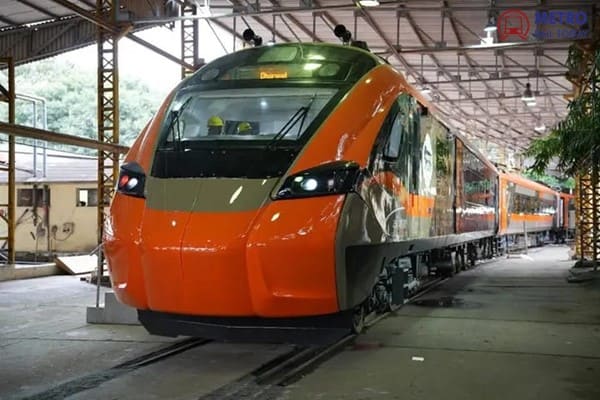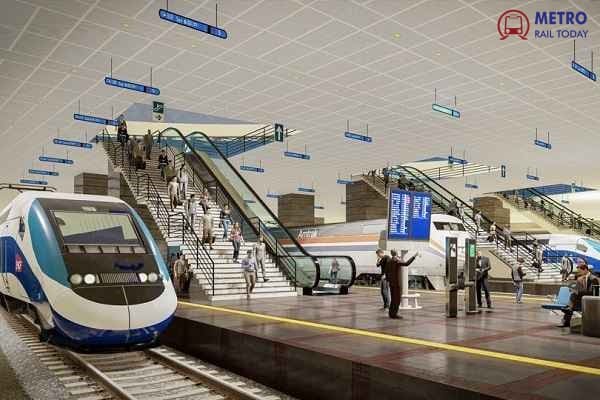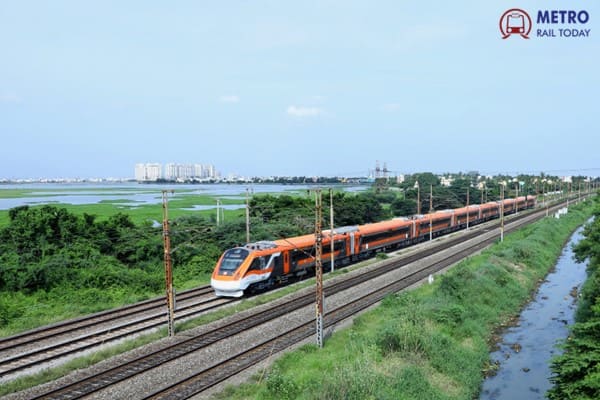 Kineco Group acquires UK-Based TRB Lightweight Structures to bolster Global Rail Interiors Business
Kineco Group acquires UK-Based TRB Lightweight Structures to bolster Global Rail Interiors Business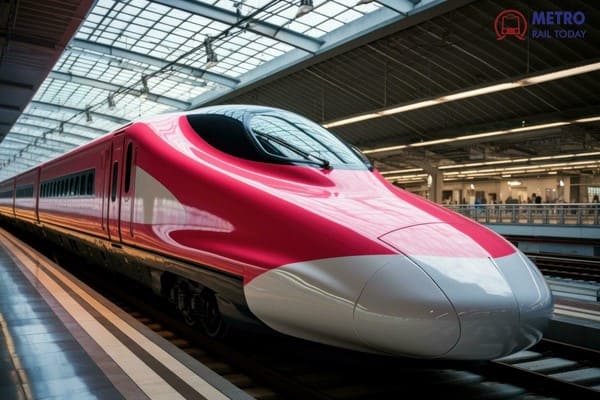 BEML partners with Knorr-Bremse to equip India’s First High-Speed Trains
BEML partners with Knorr-Bremse to equip India’s First High-Speed Trains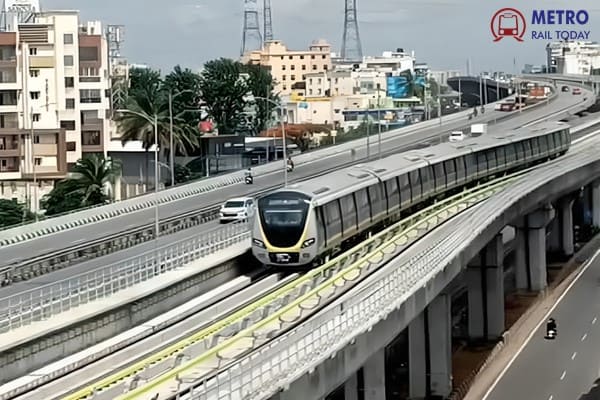 Bangalore Metro likely to procure 6 Additional Trains from BEML to ease Yellow Line congestion
Bangalore Metro likely to procure 6 Additional Trains from BEML to ease Yellow Line congestion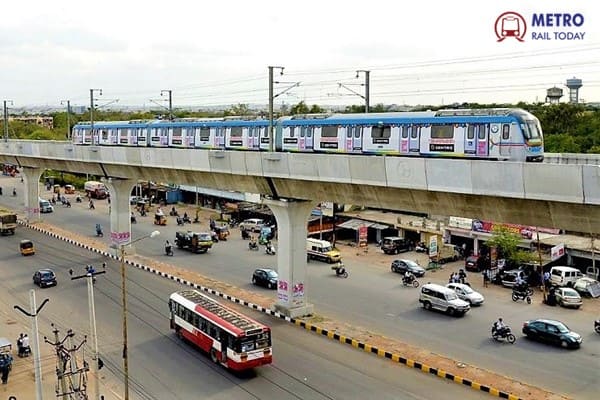 L&T proposes Hyderabad Metro Phase 1 handover to Telangana Govt amid Phase 2 expansion plans
L&T proposes Hyderabad Metro Phase 1 handover to Telangana Govt amid Phase 2 expansion plans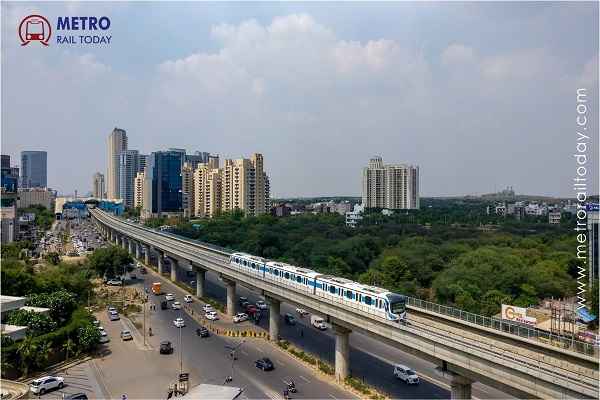 HMRTC to award DPR Contract for Sohna Road and Sheetla Mata Road Metro Corridors in Gurugram
HMRTC to award DPR Contract for Sohna Road and Sheetla Mata Road Metro Corridors in Gurugram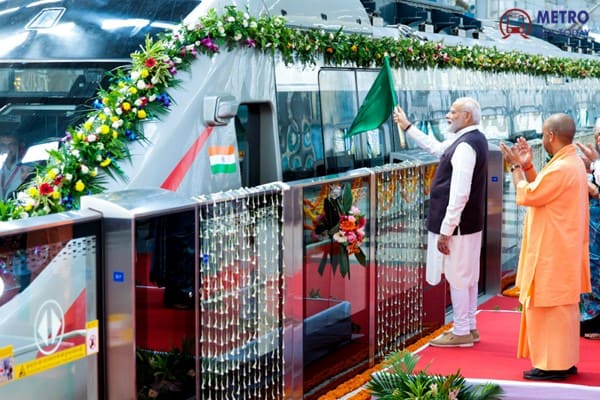 Namo Bharat Transforms NCR Mobility, Puts Uttar Pradesh on Track for High-Speed Growth
Namo Bharat Transforms NCR Mobility, Puts Uttar Pradesh on Track for High-Speed Growth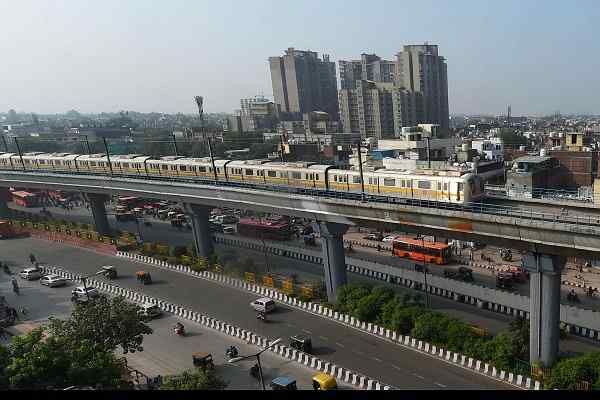 Alstom bags €42 Million, 10-Year Maintenance Contract from Delhi Metro Rail Corporation
Alstom bags €42 Million, 10-Year Maintenance Contract from Delhi Metro Rail Corporation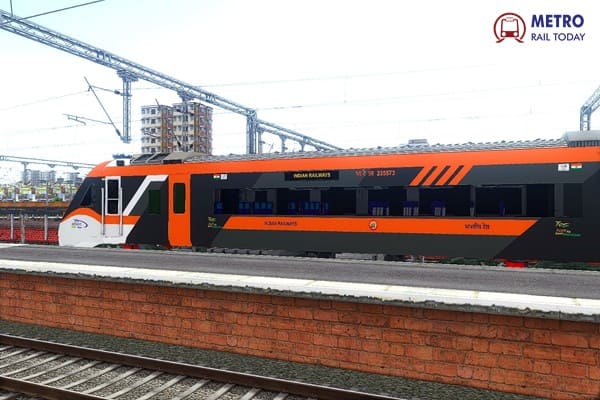 MRVC floats ₹21,000 crore Tender for 2,856 Vande Metro Suburban Coaches for Mumbai Region
MRVC floats ₹21,000 crore Tender for 2,856 Vande Metro Suburban Coaches for Mumbai Region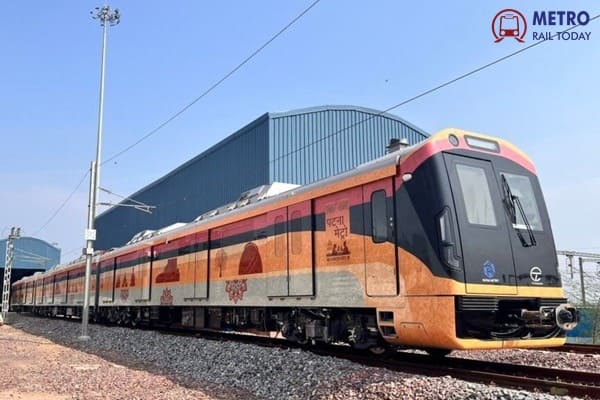 Patna Metro completes First Trial Run on Line 2, Public launch expected soon
Patna Metro completes First Trial Run on Line 2, Public launch expected soon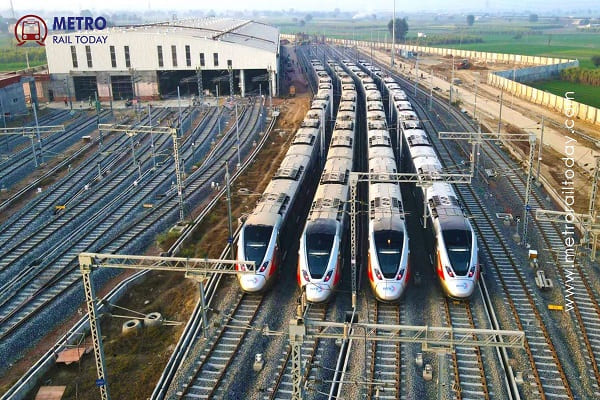 NCRTC floats Tender for 110 MW Solar Power Plant to meet Namo Bharat Corridor's Green Energy goals
NCRTC floats Tender for 110 MW Solar Power Plant to meet Namo Bharat Corridor's Green Energy goals
Konkan Railway to Merge with Indian Railways: A New Dawn for Coastal Connectivity
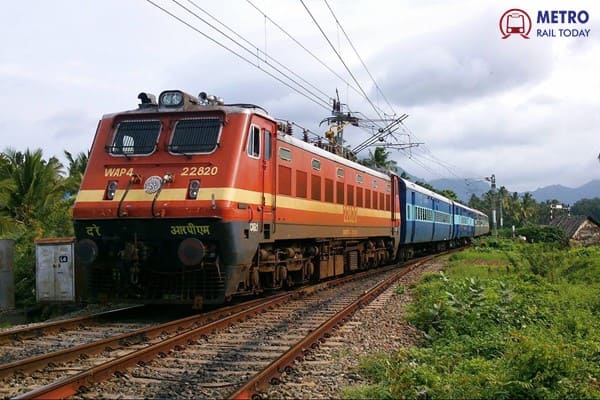
Mumbai, India (Metro Rail Today): In a landmark development poised to reshape India's railway landscape, the Konkan Railway Corporation Limited (KRCL), renowned for its breathtakingly scenic yet challenging route, is set to merge entirely with Indian Railways. Following Maharashtra's recent official agreement, the path is now clear for the complete integration of this vital rail artery into the national network, promising a new era of enhanced connectivity, operational efficiency, and passenger benefits along the Konkan coast and beyond.
The decision, which saw Maharashtra's approval last month, follows similar endorsements from Goa, Karnataka, and Kerala, the other shareholder states. This collective consensus marks a pivotal moment for the 741 km Konkan Railway (KR), a lifeline that has facilitated the movement of millions of passengers and vast quantities of goods from Roha in Maharashtra, through Goa and Mangaluru in Karnataka, all the way to coastal Kerala.
A Legacy of Engineering Prowess and Strategic Importance
Established in 1990 as a special purpose vehicle (SPV) under the Ministry of Railways, KRCL was tasked with the formidable challenge of constructing railway lines through the rugged terrain of the Western Ghats. This engineering marvel, which officially commenced operations in January 1998, boasts an impressive 91 tunnels and over 2,000 bridges, a testament to human ingenuity overcoming geographical hurdles. The Konkan Railway substantially reduced travel time, connecting distant areas to major towns and cities, thereby fostering economic growth and tourism in the region. Its unique joint venture structure saw the Government of India holding a 51% stake, with Maharashtra, Karnataka, Goa, and Kerala holding 22%, 15%, 6%, and 6% respectively. For decades, KRCL operated as a distinct entity, maintaining its unique identity and operational model.
The Strategic Imperative: Why Now?
While operationally successful and a beloved route for many, KRCL has grappled with persistent financial challenges. Despite its commercial value and scenic appeal, the "standalone model" proved increasingly unsustainable, hindering the company's ability to finance crucial expansion projects or afford major infrastructure upgrades.
Maharashtra Chief Minister Devendra Fadnavis, in a letter to Railway Minister Ashwini Vaishnaw, underscored this very point, stating that the merger would enable KRCL to leverage the massive investment base of Indian Railways. This integration is seen as a precursor to unlocking new projects, improving connectivity, and enhancing the frequency and quality of services, ultimately benefiting local economies, tourism, and employment opportunities across the region.
Maharashtra's prior hesitation stemmed from its significant initial investment in 1990 and concerns that the Konkan route might lose its distinct importance post-merger. However, the Centre has reportedly agreed to two crucial conditions: the continued use of the "Konkan Railway" name and the reimbursement of over Rs 394 crore to Maharashtra for its initial investment. These assurances paved the way for the final state approval.
Transformative Impact on Passengers and Operations
With all stakeholder approvals secured, the ball is now in the Railway Board's court to initiate the merger process. This complex undertaking will involve significant administrative, financial, and legal steps, including reworking employee hierarchies, operational areas, and service contracts, a process that could take several months to materialize.
Once completed, the merger is expected to usher in a new era of benefits for passengers. Commuters can anticipate upgraded infrastructure, leading to smoother and potentially faster journeys. Improved frequency of trains, enhanced security measures, and seamless connectivity with the broader Indian Railways network are also on the horizon. Furthermore, the integration is likely to translate into more competitive fares, streamlined booking processes through Indian Railways channels, and standardized customer grievance redressal mechanisms – areas that have historically posed challenges for Konkan Railway passengers.
"The merger of Konkan Railway with Indian Railways is a momentous decision that reflects a strategic vision for integrated national infrastructure development," commented Mrs. Mamta Shah, MD & CEO, Urban Infra Group. "This move will not only address the financial sustainability of a vital corridor but also unlock its immense potential for growth, contributing significantly to India's overall urban mobility and freight logistics. It underscores the government's commitment to a cohesive and efficient railway network, which is paramount for economic progress and enhanced public convenience."
This historic merger is more than just an administrative consolidation; it represents a strategic alignment aimed at optimizing a critical rail asset, enhancing its operational capabilities, and ensuring its long-term financial viability. As India continues its ambitious journey of railway modernization, the integration of the Konkan Railway sets a powerful precedent for future infrastructure development and connectivity across the nation.





